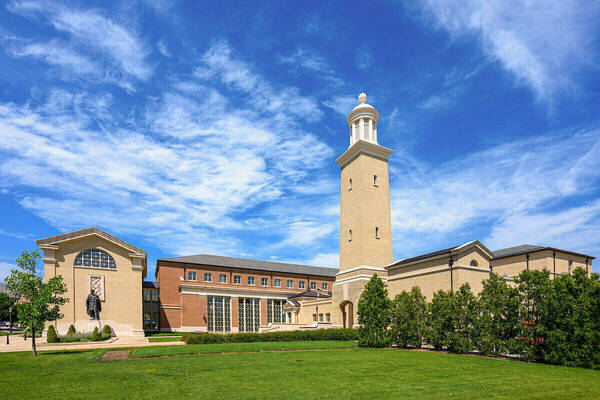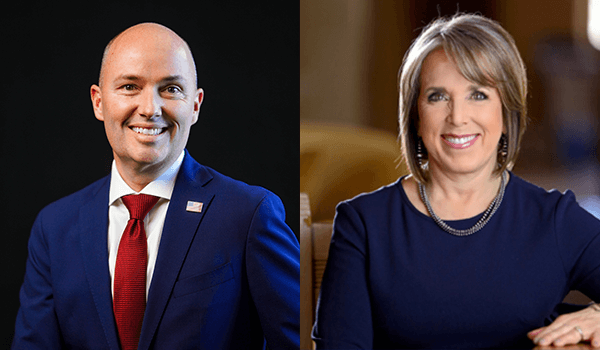Shipping policies designed to boost online spending instead drive consumers into stores

Online shopping has experienced massive growth over the past decade, leading to extensive research into how businesses merge their physical store presence with online platforms.
A new study from the University of Notre Dame reveals surprising results when shipping policies are adjusted from tiered to flat-rate models.
Previous studies have ignored the nuances of e-commerce shipping fee policies, which serve as a critical strategic tool for retailers. Traditionally, companies including AutoZone, World Market and BatteriesPlus have favored tiered shipping fees determined by order cost. More modern policies at retailers like BoxLunch, White House Black Market and Saks Fifth Avenue have shifted to flat fees designed to encourage higher-dollar online orders, as consumers may feel the fees are “wasted” unless they make a larger purchase.
Rather than boosting e-commerce, the change drives many online shoppers into the stores, leading to an overall increase in sales from both channels, according to the lead author Vamsi Kanuri, the Viola D. Hank Associate Professor of Marketing at Notre Dame’s Mendoza College of Business. Kanuri’s findings, “Disentangling the Customer-Level, Cross-Channel Effects of Large-Order-Advantaged Online Shipping Policies” were recently published in MIS Quarterly.
Kanuri, along with Andrew Crecelius from Iowa State University and Subodha Kumar from Temple University, analyzed 16 months of transaction data from more than 21,000 customers of a major luxury department store operating online and with physical stores in five states. Switching from a tiered online shipping fee where bigger orders cost more to ship, to a flat-rate that costs the same no matter how much is purchased, they tracked how the new policy impacted online and in-store purchasing behavior, specifically focusing on order frequency, size and item types.
Under the retailer’s tiered system, a $10 order included no fee, a $30 order incurred a $7 fee and a $100 order had a $20 fee. With the shift to a flat-rate shipping policy, customers paid $7 regardless of order size.
‘We expected this would boost online shopping,” Kanuri said. “But surprisingly, in-store sales increased by 23 percent among the shoppers who purchased only through the online channel before the policy change.”
Specifically, shoppers reduced their average monthly online spending by $242,000 (11 percent decrease), while previously online-only shoppers spent a whopping $975,000 (23 percent increase) in stores. They pooled their online orders until they reached the threshold, resulting in fewer but larger online orders, then visited physical stores in between for smaller items.
According to the U.S. Census Bureau, Amazon has dominated the $900 billion online market, while rivals with physical stores like Macy’s rush to boost their e-commerce sales and others including J. Crew, Neiman Marcus, Pier 1 Imports, Revlon and Sears faced bankruptcies and store closures.
“For these legacy retailers trying to stay competitive with Amazon, especially those with both online and physical stores, this study is big,” Kanuri said. “Our work shows that online shipping policies can shape how and where people shop. A flat-rate shipping fee might not juice up online orders as intended, but it can be a clever way to get customers to step into a physical store and boost sales for both, putting ‘e-tailers’ at a slight disadvantage.”
Kanuri advises managers to make better use of their physical locations by assessing how their shipping strategies affect in-store behavior as well as online sales.
Contact: Vamsi Kanuri, 574-631-2399, vkanuri@nd.edu
Latest ND NewsWire
- Faculty receive prestigious early career awards from National Science FoundationDuring the 2024-25 academic year, four researchers in the University of Notre Dame’s Colleges of Engineering and Science received early-career awards from the National Science Foundation.
- Notre Dame School of Architecture poised for global leadership through historic investmentThe $150 million gift represents an unprecedented commitment in the 160-year history of American architectural education. In recognition of this landmark gift, the school will be renamed the Matthew and Joyce Walsh School of Architecture at Notre Dame.
- Banks that identify fraudsters increase loyalty, retain more defrauded customers than others who never were compromisedIn a new research study, Vamsi Kanuri, the Viola D. Hank Associate Professor of Marketing at the University of Notre Dame’s Mendoza College of Business, found that banks that identify fraudsters earn customer loyalty and lose customers if they can’t say who was responsible for a fraudulent transaction.
- Notre Dame to host summit on AI, faith and human flourishing, introducing new DELTA frameworkThe Institute for Ethics and the Common Good and the Notre Dame Ethics Initiative will host the Notre Dame Summit on AI, Faith and Human Flourishing on the University’s campus from Monday, Sept. 22 through Thursday, Sept. 25. This event will draw together a dynamic, ecumenical group of educators, faith leaders, technologists, journalists, policymakers and young people who believe in the enduring relevance of Christian ethical thought in a world of powerful AI.
- Notre Dame Democracy Initiative hosts bipartisan conversation with Western state governorsTwo Western state governors known to work across the aisle on policy issues such as water, housing and energy will visit the University of Notre Dame for a fireside chat about how Western state pragmatism can serve as a model for the country to overcome polarization.
- In new research, Roy Scranton explores climate change and the limits of human progressIn his most recent book, “Impasse: Climate Change and the Limits of Progress,” Scranton, an associate professor of English, defines the impasse he sees as “not only political and institutional, but cognitive, existential and narrative” and asserts that the only path forward is through embracing what he terms ethical pessimism. “A lot of people confuse pessimism with nihilism, apathy and despair,” Scranton said. “But pessimism is actually about recognizing our limits, letting go of unrealistic goals, finding solidarity in the fact of human suffering and doing what you can now, not in some utopian future.













